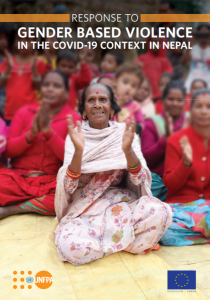
Disease outbreaks affect women and men differently, and epidemics make existing inequalities for women and girls, and discrimination of other marginalized groups such as persons with disabilities and those in extreme poverty, worse. Furthermore, crises and times of unrest have been linked to increased incidence of violence against women and children, and the COVID-19 pandemic is not an exception. In a pandemic, women and girls may be at higher risk of intimate partner violence and other forms of domestic violence and also face increased risks of other forms of GBV, including sexual exploitation and abuse.
In addition, life-saving care and medical support to GBV survivors (mental health and psycho-social support) may be inaccessible as health service providers are overburdened and preoccupied with handling COVID-19 cases. It is also critical to update communities about changes in available care facilities and how they can access them during lockdown conditions.
In light of this, the “Response to Gender Based Violence in the COVID-19 Context in Nepal” Project aims at mitigating the impact of the pandemic on violence against women and girls by supporting the continued provision of GBV services in Four Districts in Province 2 and Karnali Province or Province 6. The project is informed by the needs and challenges on the ground, and is supported by the Delegation of the European Union to Nepal.
